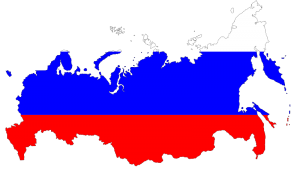6 things you should know about the Russian language
 Source: slavistix.nl
Source: slavistix.nl
Russian has a fearsome reputation as a tough language to learn, but it’s far more than just having to learn a new alphabet. A recent article on slavistix.nl explains six of the biggest basic hurdles of learning Russian, so those considering taking up the language should take note.
1. Stress is mobile and flexible and does not follow strict rules. The correct placement of stress is one of the major problems when learning Russian language.
2. There are 6 different cases in Russian language, inflection and declination are important features of Russian language.
3. Word order is flexible, as Russian is highly inflected. You can say красивая машина (beautiful car) or машина красивая (car beautiful) and it will be evenly grammatically correct.
4. Aspect. In addition to tense and mood Russian verbs possess a feature called aspect. They can be perfective or imperfective indicating if the action is completed.
5. Formal and an informal you. Russian is one of those languages that differentiates between a formal and an informal you. So please use the polite “Вы” for people you’ve just been introduced to and switch to the informal “ты” after you’ve been invited to do so.
6. Patronymic: a Russian name consists of the first name, patronymic and family name, eg. Vladimir Vladimirovich Putin, Mikhail Dmitrievich Prokhorov or Svetlana Vladimirovna Medvedeva. The patronymic does what it says – it’s based on the name of one’s father with -ovich behind it for a son and -ovna for a daughter. It is considered polite to address someone by his first name and patronymic. If you’re learning Russian there’s no better way to impress than knowing someone’s formal name. Learning to use it correctly in accordance with six cases is a completely different matter though.
